Impermanence of political friends or foes: Lessons Nigerians can learn from Kenya
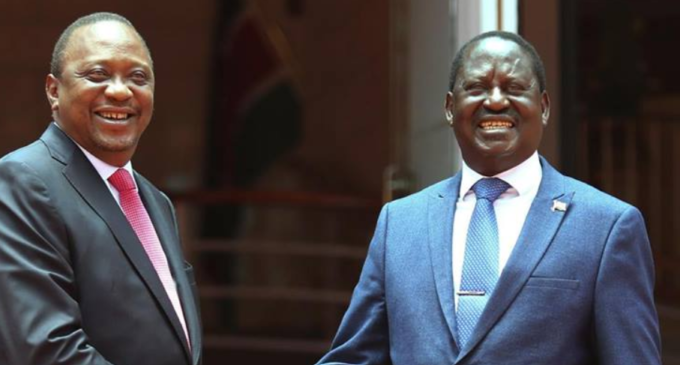
I wouldn’t know if Alexander Pope, had Nigeria in mind when he defined politics as the madness of many for the benefits of few; but he aptly describes our brand of politics in this clime. Some Nigerians who style themselves as supporters of certain politicians can do the nastiest of things to please their political idol, even though there might be no express instruction to that effect. The toxicity of the political arena in Nigeria is such a legendary one that has no rival anywhere across the globe, especially on social media. Things could range from verbal assaults (including character assassination) to physical ones (use of thuggery for maiming and lynching). But before the advent of social media, the toxicity manifested itself in the colour of violence, ranging from physical harassment to outright assassination.
As of today, the land is still littered with unresolved high-profile cases of political murders. Among those political assassinations are those of a sitting attorney-general of the federation, Chief Bola Ige, former national vice-chairman (south-south) of the “All Nigeria People’s Party”, who was assassinated in Abuja in 2003 during the presidential elections, Harry Marshall, a foremost governorship aspirant in Lagos and Ekiti states, Funsho Williams and Ayo Daramola respectively; former chairman of Kabba-Bunu local government area and chairman of the Kogi State Independent Electoral Commission (KSIEC), Philip Olorunnipa. Up to this moment, the case files for these high-profile cases of political assassinations have been left to either gather dust on the shelves of the various Directorates of Public Prosecution across the country or have gone missing completely. In all of these, there is a point, we must not miss, and that is; all the politically motivated assassinations in Nigeria, from 1999 to date, have either involved southerners or took place in the south. None had had a northerner involved. Only one took place in the north, but it involved a southerner as the victim – Harry Marshal, murdered at his residence in Abuja.
Although these murder cases remain unresolved, we have not seen many of such politically motivated murders in decades; such days appear to be behind us in Nigeria. What led to the reduction in this kind of ugly incidence is still a subject of scientific guess among relevant scholars. But some people say, it is the ideological flexibility (I call it ideological bankruptcy or political prostitution) in our highly monetized politics that is responsible. People who take loans to participate in politics no longer have to bear any cross as a result, as there is, an unofficial arrangement where the winner compensates losers, at least, at the intra-party level. That has, logically speaking, reduced the degree of desperation and the resultant do-or-die syndrome that often resulted in maximum violence, towards opponents. What we have been witnessing, ever since, is the toxic assassination of people’s characters, fuelled with a menace called “fake news”.
In the run-up to the 2015 general election, as if Nigerians were in a race to the abyss, everyone threw decorum to the wind, deploying the most derogatory of languages. People burnt bridges of friendship, built over decades. Family ties were severed for the sake of political idols who are not, in most cases, aware of the existence of those who acquire enemies on their behalf. The then governor of Ekiti state, Ayodele Fayose was the first to take a front-page advertorial, announcing the expected death, before the end of the first term tenure, of the then-candidate of the All Progressives Congress (APC) Major-General Muhammadu Buhari (retired), in a number of national dailies. Furthermore, two of the pride of television broadcast in Nigeria, the federal government-owned Nigeria Television Authority (NTA), and one of the first private television stations in Africa, African Independent Television (AIT) ran a campaign that seemed to malign the personality of a former Lagos state governor and a chieftain of APC, Bola Ahmed Tinubu, depicting how allegedly corrupt he is. Do not forget that, all of these were in flagrant violation of the National Broadcast Code, as spelt out by the Nigerian Broadcasting Commission (NBC). There were a dozen other derogatory campaigns against the then incumbent president, Dr Goodluck Jonathan, calling him unprintable names. It was so bad then that political parties were called names like; Janjaweed, Boko Haram and stuff like that. But this time around, the battleground seems to have properly shifted to social media with character assassination, information attacks, and fake news being the stock in trade. It is not as if there is no law in Nigeria that takes care of libel, but the wheel of our judicial process rolls so slowly that any aggrieved person would have no option but to turn blind eyes and deaf ears to everything in the media that seems to drag his reputation in the mud or assassinate his character.
Any student of African colonial and post-colonial history, with a special appetite for East African countries, especially Kenya, would not find the names of Jomo Kenyatta, and Oginga Odinga, strange. The duo were to Kenya, what the likes Dr Nnamdi Azikiwe, Chief Obafemi Awolowo, Sir Ahmadu Bello and Co., were to Nigeria. They were strong members of Kenya’s struggle for independence during the British colonial era. They were at the forefront of the anti-colonial struggle. In Kenya, when Jomo Kenyatta was incarcerated by the British colonial authority then, the mantle of leadership of the Kenyan anti-colonial struggle fell on the shoulders of Odinga. He was a prominent member of the “Mau-Mau movement” that was much dreaded by the colonial authority in Kenya then.
Following his release from prison and the proclamation of Kenya’s independence, Kenyatta became the first president, with Odinga being his vice president. The duo would later part ways, politically, due to irreconcilable ideological differences. The former was more favourable to Kenya being an ally to the capitalist west, while the latter was more inclined towards the communist east. This is despite the fact that they were both elected on the platform of the Kenya African National Union (KANU). After a very hot verbal exchange between the two estranged political allies in 1969, the president got his former vice arrested and detained for 18 months. He would, thereafter, remain on political sabbatical, until the death of Kenyatta over a decade after he was released from prison. He did try to stage a comeback but he fell short.
The political rivalry was to later be rekindled between the scions of the two political empires (Kenyatta and Odinga). Uhuru Kenyatta and Raila Odinga became the faces of the nation’s major political divides, symbolised by the two families. This was signposted by fierce political contests between the two gladiators over the years; a case in point is the 2017 presidential election where Kenyatta (Jnr) was declared the winner with 54%, against Odinga’s 43%. But the supreme court later annulled the election and ordered a re-run, following a proven allegation of illegalities and irregularities. However, Kenyatta later won the rerun and would soon serve out his term.
Events between these two bitter political rivals took a new turn that left keen observers of political events in Kenya mesmerised, as the outgoing President, Kenyatta, endorsed his long-term rival, Raila Odinga, saying he (Odinga) “meant well for the country “, according to a report by Africanews.
This is in line with the popular saying: “There is no permanent friend or foe in politics; what exists is permanent interest”.
As we inch closer to the 2023 electoral process, the same trend has started again. This time around, those whose stocks in trade are splashing mud on personalities who they perceive as opponents of their preferred aspirant are at it again. As the battle for the presidential ticket of the ruling party (APC), it seems to have been narrowed down to a race between the APC national leader, Asiwaju Bola Ahmed Tinubu, and his former protégé and the incumbent vice president, Professor Yemi Osinbajo. Even, before the latter announced his intention to run, the political temperature has been out of the roof with his admirers and those of Tinubu up in arm against one another on social media. Posters were seen, flying around major cities, denigrating one or the other.
Funny enough, the two gladiators have been known to have worked together in the past, for public interests. They, hitherto, enjoyed the confidence of one another, and there was a mutuality of respect between them, even though Asiwaju is seen by some as the political benefactor to Osinbajo. Most of the self-appointed defenders of each of the gladiators, in defending a principal who is not aware of their existence, are trying to out-do each other on social media as to who has the capacity to deploy gutter languages more than the other. Osinbajo, for instance, was designated “Judas Iscariot” for purportedly betraying his former boss (having served under Tinubu as the attorney general of Lagos state), even though, Tinubu had never, in any of his public utterances mentioned, being betrayed by anyone for that matter. One would shudder to ask if Tinubu is “Jesus”? The freelance defenders of Osinbajo too would not sit back and watch the image of their political idol mutilated. They came up with a story of Tinubu being afflicted with Parkinson’s disease and dementia, even without any shred of evidence in the colour of a medical report to back it up. The social media out there is so toxic that one would think that Tinubu and Osinbajo must not be allowed to come within ten kilometres of each other, to avoid an apocalyptic cataclysm.
In all of these, the offsprings of these people could be somewhere vacationing together, enjoying and laughing at the collective follies of those who are crying more than the bereaved. Meanwhile, events in the recent past have shown us that estranged politicians have no qualm about coming together to form an alliance at any point where there is a convergence of interests. Chief Bisi Akande and his deputy while he was the governor of Osun state, Iyiola Omisore, having parted ways in 2003 or thereabout, are now back in the same political party, APC. The rumour making the rounds in the past couple of weeks is that former president, Dr Goodluck Jonathan of PDP, is being wooed by some elements in the APC, to defect and be given the presidential ticket to run on the party’s platform – a party which alliance threw him out of office seven years ago.
For someone to even contemplate such an audacious plan shows that the politicians do not give a hoot what you (their supporters) think, or how you feel; once it is time to close ranks and move on, they do without consulting those who were ready to go to jail on their behalf in the past. In 2015, Saraki was in the trench, plotting the ouster of Goodluck Jonathan, his fellow party man before 2014. He did succeed with the collaborative efforts of the different tendencies that formed the APC then. But today that he is back in the opposition People’s Democratic Party (PDP) Jonathan is his party leader once again as he eyes the party’s presidential ticket.
The ways of the elites are, surely, not those of the masses. That is why you’d see them having dinner together, keeping aside their political differences and interests that change like the British weather. For the “Bole kaja” gang, two presidential aspirants on the platform of APC, Rotimi Amaechi and Bola Tinubu were seen in viral pictures on Tuesday, May 3, 2022, at the private wing of the Muritala Mohammed International Airport Lagos. Yet, these obstreperous social media hoodlums won’t grow up and be sensible about their engagements with their counterparts from other political camps.
With what happened in Kenya early this year and highlighted above, it is my belief that Nigerians can learn a lesson or two from it, even though, we are not short of local examples. But since we like everything foreign, I decide to come up with an example, from outside the shores of our land. Uhuru Kenyatta and Raila Odinga have just demonstrated once again; the impermanence of political friendship or enmity, the constancy of political interests, and what Nigerians can pick from the experience, to detoxify the vileness-soaked Nigerian political milieu.
We can disagree, without being disagreeable!
Abubakar writes from Ilorin. He can be reached via 08051388285 or [email protected]
Views expressed by contributors are strictly personal and not of TheCable.







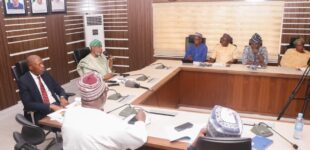
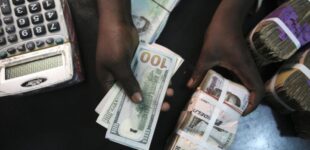
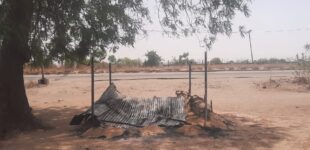
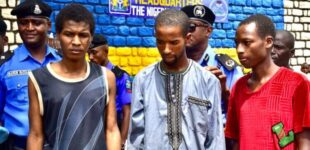
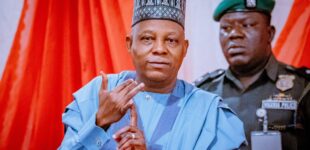

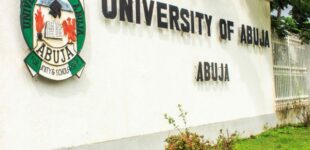
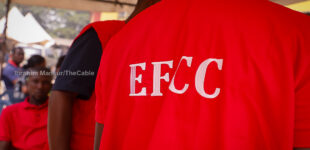
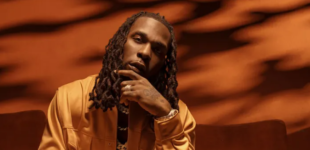

There are no comments at the moment, do you want to add one?
Write a comment